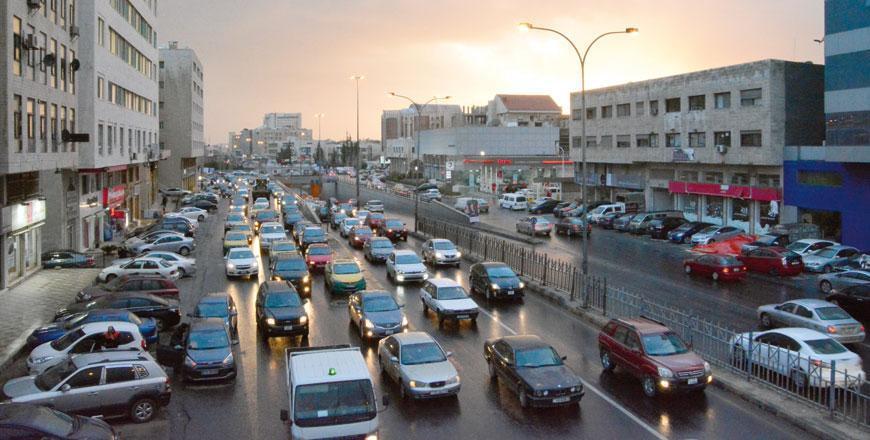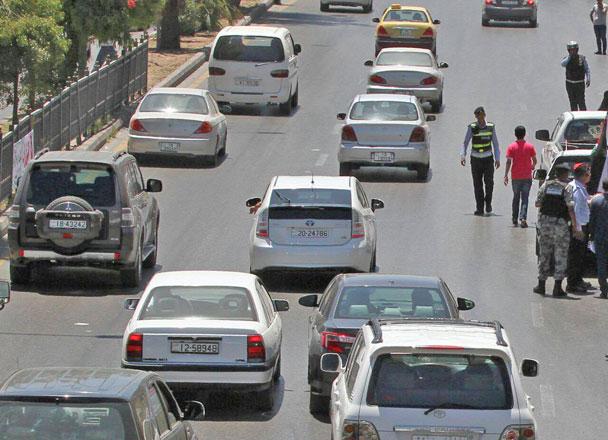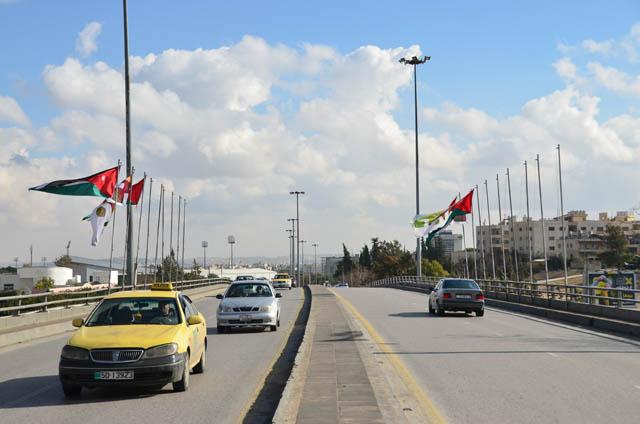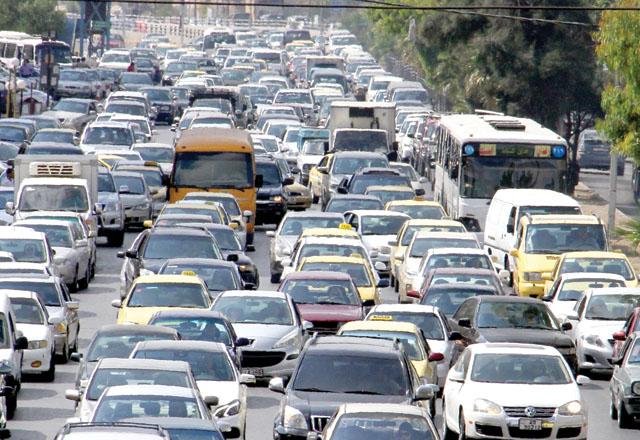You are here
Experts suggest use of 'intelligent' transportation systems to address Amman’s traffic congestion
By Sara Faqir - Aug 21,2024 - Last updated at Aug 21,2024

Amman’s traffic congestion is a complex issue driven by rapid urbanisation, population growth, and an ageing road network (JT File Photo)
AMMAN — Amman’s traffic congestion is a complex issue driven by rapid urbanisation, population growth, and an ageing road network struggling to meet the city's evolving demands, experts say.
Ahmad Omari, an associate professor of civil engineering and a traffic and transportation expert, told The Jordan Times that Amman’s traffic congestion stem primarily from an imbalance between traffic demand and the capacity of the road network.
He explained that rapid urbanisation and population growth have outpaced infrastructure development, leading to higher traffic volumes that overwhelm the city's streets and intersections.
“The road network, characterised by narrow streets and limited lanes, struggles to accommodate the increasing number of vehicles, especially in the absence of alternative routes,” Omari said.
In regard to future congestion trends, Omari suggested that to manage congestion more effectively, Amman must adopt intelligent transportation systems (ITS), including advanced traffic management, real-time monitoring, and adaptive signal control. These technologies could significantly enhance the efficiency of the existing road network, alongside policy interventions such as congestion pricing.
“Urban planning will also play a critical role,” Omari added. “Sustainable development practices, such as mixed-use zoning and higher-density areas near transit hubs, could reduce the reliance on private vehicles.”
Mamoun Sabah, a mechanical engineer, traffic specialist, and former colonel at the Public Security Directorate, suggested solutions to address the congestion. He emphasised designing roads to accommodate current and future traffic volumes and improving intersections by optimising traffic light timing.
Sabah also underscored the importance of public awareness and education, noting that increased traffic awareness could positively impact congestion.
Hashem Aqel, an energy and oil expert, discussed the interplay between fuel prices and traffic congestion, highlighting how each influences the other.
“When gasoline prices rise, Jordanians tends to ration consumption. Conversely, lower prices lead to increased demand and more cars on the streets,” he said.
Aqel also pointed out that during the summer, Jordan experiences an influx of over 200,000 vehicles, including tourists and expatriates. This seasonal surge in vehicles increases gasoline demand, exacerbates traffic congestion, leading to work delays, infrastructure wear and tear, and leads to more traffic accidents.
“In the first half of this year, we saw a 7 per cent decrease in gasoline consumption compared with the same period last year, which can be attributed to Jordan's rapid shift toward electric vehicles,” Aqel noted.
Hanna Salloum, a commuter who lives in Fuheis and works in the Wadi Saqra area, told The Jordan Times that he struggles with severe congestion in the capital. His commute takes around 45 minutes to an hour.
The driving behaviour of other commuters also contributes significantly to traffic congestion. Frequent lane changes and failure to follow traffic rules all exacerbate the problem, further slowing traffic flow, Salloum noted.
Related Articles
AMMAN – City planners are optimistic that in 2018 motorists in Amman will spend less time sitting in traffic as a major public transport pro
Jordanians and tourists need not worry about finding a taxi from now on thanks to a new initiative launched by a Jordanian engineer.
Several Amman residents on Wednesday complained about the “unprecedented” traffic jams caused by thousands of cars driven by Jordanian expatriates and Gulf tourists flooding the capital’s streets.

















